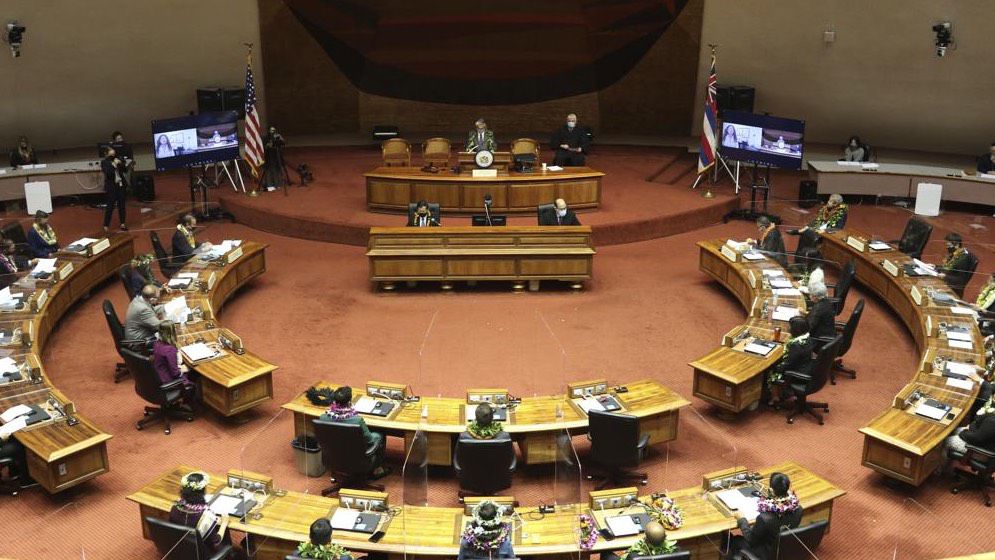The state House’s much-debated, much-amended minimum-wage bill cleared the Senate ways and means committee on Thursday and now awaits third reading.
House Bill 2510 (House Draft 2, Senate Draft 1) was unanimously recommended for passage as is.
Like the Senate’s own version of the bill (SB 2018), the House bill would increase the state minimum hourly wage, currently $10.10, to $12 in October, $15 in 2024 and $18 in 2026. It would also phase out the tip credit, now 75 cents per hour, to 35 cents per hour in October and zero per hour in 2026.
If passed, this would be the first increase to the state minimum wage since 2018.
The original draft of the bill called for smaller, annual increases until the minimum hourly wage hit $18 in 2030. It also provided for annual increases in the tip credit, topping at $2.75 per hour in 2030.
Subsequent House drafts shortened the minimum wage increase timeline by two years and deleted other provisions that would have established a mechanism to annually adjust the minimum wage and tip credit and used funds from the Tax Administration Special Fund to educate low-wage earners about withholding options.
The Senate further amended the bill to delete a provision that would have established an earned income tax credit, replace the minimum increase timeline with that of the Senate’s own SB 2018, and phase out the tip credit.
“Hawaii's most economically vulnerable workers are suffering from a living wage shortage, and it is time to raise the wage floor for all workers,” said Hawaii State AFL-CIO president Randy Perreira. “This measure moves Hawaii’s low-wage earners in the right direction towards a wage that dignifies their labor.”
While noting that increases to the minimum wage could impact eligibility for public assistance that are means-tested, Cathy Bett, director of the Department of Human Services said the increase in minimum wage is needed to help low-income households survive as temporary pandemic-related federal relief diminishes.
“As the health and economic tolls of the pandemic continue, the state needs to reset its wage and tax policies to benefit working families and low-income residents,” Betts said. “Additional federal relief that buoyed many residents through the first two years of the pandemic may be slower in coming.”
However, Victor Lim, legislative lead for the Hawaii Restaurant Association, said the proposed increases are too much, too soon, and are not justified for those in entry-level positions.
“We are not against increasing wages for our employees but feel that the bill’s schedule of starting at $13 per hour (on Jan. 1, 2023) needs to be lowered to $11 and no more than $12,” Lim testified in writing. “This is but a starting wage where someone who has no work experience starting their very first job commands. This group of employees is usually a small percentage of our workforce because after working for a period of time usually gets merit wage increase.
“Whenever you increase this starting (minimum) wage, please bear in mind that we also have to do a compression of the majority of our current workforce that are making over the new starting wage,” Lim wrote. “We have to keep reasonable gaps between rookies and tenured staff.”
Younghee Overly, public policy chair for the American Association of University Women of Hawaii said the increased would help to improve the lives of women.
“Six in 10 of Hawaii’s minimum wage workers are women, as they are overrepresented in low-wage industries like restaurants, food service, and retail,” she testified. “As you know, low-wage workers were disproportionately harmed by Hawaii’s economic downturn caused by the COVID-19 pandemic. They need a living wage now more than ever before.
“We believe our economy would grow as the low-wage workers’ income grows,” Overly testified. “Consumer spending makes up about two-thirds of our economy, so putting more dollars in the pockets of local workers means more money being spent at local businesses and supporting our local economy.”
Testifying on behalf of the Hawaii Workers Center, John Witeck agreed with the provision to do away with the tip credit, which allows employers whose employees receive tips to pay below the minimum wage.
“The tip penalty allows some business owners to pay their workers a sub-minimum wage while subsidizing their labor costs through customer tipping,” Witeck testified. “The so-called tip ‘credit’ not only allows the business owner to offload labor costs onto the customer, it's also routinely misapplied, resulting in billions of dollars in stolen wages across the U.S. every year. On top of that, workers that are forced to work for tips to survive are exposed to far higher rates of sexual harassment and other forms of violence in the workplace.
"All business owners should be required to pay all their workers a living wage — enough for them to not just survive, but thrive on, and not have to work two or three jobs or rely on receiving tips for their service,” he said.
Michael Tsai covers local and state politics for Spectrum News Hawaii.









